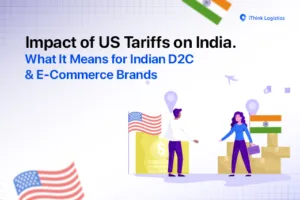What is Sustainable eCommerce?
Stylish products? ✅
Super easy navigation? ✅
Superb sale response? ✅
Successful eCommerce venture? ✅
Wait…the checklist has one final question.
Sustainable?
We are asking this question because eCommerce/online shopping is often blamed for the rise in consumption and more waste.
eCommerce ventures have made shopping so easy (and so much more convenient) that users tend to consume mindlessly and quickly.
Thereby, leading to shorter lifespans of products and more piles in the landfills.
But does eCommerce business need to stick with its bad reputation? No!
Because now, capitalist dreams can be achieved while also caring for the planet. To put it simply, today an ecommerce business can not just be successful but also sustainable.
It stems purely from the fact that at present a business should be able to meet the requirements of the consumers with minimal environmental impact and a much lesser carbon footprint.
What is the current impact of growing eCommerce on the environment?
Take a walk on the beach before its weekly beach cleanup drive.
The countless packaging materials/boxes, the tapes, the thermocols and styrofoams, the packing peanuts and the resealable plastic bags line the shores after passing through the hands of the consumers who ordered products via online shopping. This is just the tip of the iceberg.
As per Economic Times, eCommerce in India is expected to reach $120 billion by 2026.
You can only imagine the amount of products to be manufactured to keep up with the demand and the packaging materials used.
More so, the greenhouse gas emissions that take place while transporting orders from the warehouse to the customer also have a negative environmental impact.
So what is the solution?
Here are 4 things you can do to make your eCommerce business sustainable:
1. Start with sustainable packaging:
Thermocol and plastic fillers are dangerous for the environment owing to their non-biodegradable nature.
However to still give your products good support while in transit, switch to using shredded paper batches, corrugated paper pieces and old cloth pieces.
In every season besides monsoon, switch to shipping your products in sealed paper bags as opposed to plastic pouches. Use minimal tape to hold the package in place.
For eg: Bare Necessities, SwitchFix and Ecoware have vowed to never use non-eco friendly packaging.
2. Consider manufacturing/selling eco-friendly products in the first place:
From reusable bamboo straws and spoons to earthen pots to jute bags to plantable stationery to biodegradable sanitary pads, every business avenue has opened up room for environmentally conscious products.
For eg: Phool, an Indian brand makes incense cones and sticks from discarded temple flowers.
Indeed a great initiative to generate little waste and prevent existing waste from entering the ocean.
Another brand Rusabl, manufactures and sells tumblers and kitchenware that are wooden/metal and reusable in nature.
3. Recollect your product empties:
Consumers love a brand that gives back to society. As much as consumers will love your product quality, they will love how you are one of those sustainable brands that use eco-friendly packaging materials and recycle their plastic containers.
Indians love keeping sturdy bottles/containers of products even after they’re totally over solely because of the ingrained habit of ‘repurposing.’
A brand doing so stands a chance to gain brand loyalty.
For Eg: The Body Shop started the campaign of ‘Bring Back Our Bottles’ which was an open invitation to all consumers to deposit empty containers of their products in their nearest store.
Indian eCommerce beauty player, PLUM started ‘Empties for good’ where users can ship their empties back to PLUM for recycling all while getting a discount for being a good citizen.
As for repurposing, PLUM also provides ample tips on using the empty containers as planters, tealight holders, jewellery storage boxes and more.
4. Provide sustainable delivery options:
Have you ever shopped from Amazon and been asked to choose between ‘Free Prime Shipping’ and ‘Free Standard Shipping’? While both are essentially free, with a little patience customers have the power to generate less wait.
While Free Prime Shipping dispatches orders as fast as they can as per availability, Free Standard Shipping allows the consumers to get their orders together and in fewer boxes.
An effort like this on a large scale, is not only economical but also ecological. Adapt this practice in your online retail business and ship multiple orders of a single customers in one box together.
This will also reduce travel emissions. You can also choose third-party logistics providers that allow green shipping options by using recyclable/planet-neutral packaging and less vehicles to make the deliveries.
5. Bonus:
Reduce the number of returns by being extremely specific especially when its come to the size of clothes and shoes.
Provide online measuring guides so that users don’t return beloved outfits simply because of them being ‘too large’ / ‘too transparent’ / ‘too different than the picture’.
Add another layer of proficiency by mentioning the material so that people can make a choice beforehand based on their skin preferences.
Don’t mention the colour BLUE. Specify the type – Light blue/ Prussian blue/ Ocean blue/ etc for consumers to make a better decision.
While unpredictable weather, different terrains and constantly flowing orders make it difficult to go green in its entirety, you can start small.
Pick your busiest and most serviceable delivery area and ensure that the orders go in minimal eco-friendly packaging.
With a shorter delivery radius and in transit time, even dynamic climate changes are less likely to hamper deliveries. So what are you waiting for? Say yes to sustainable eCommerce today!












